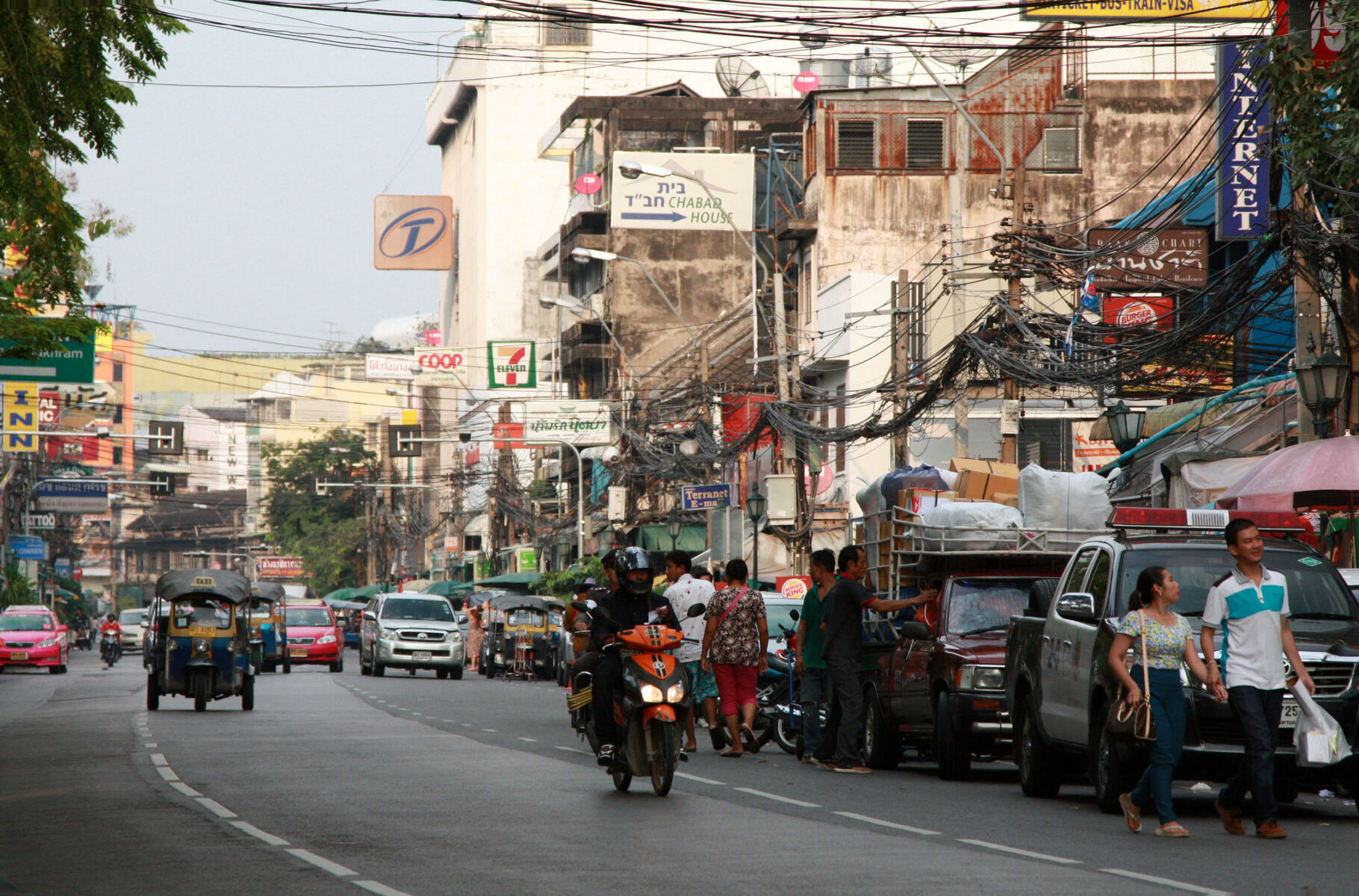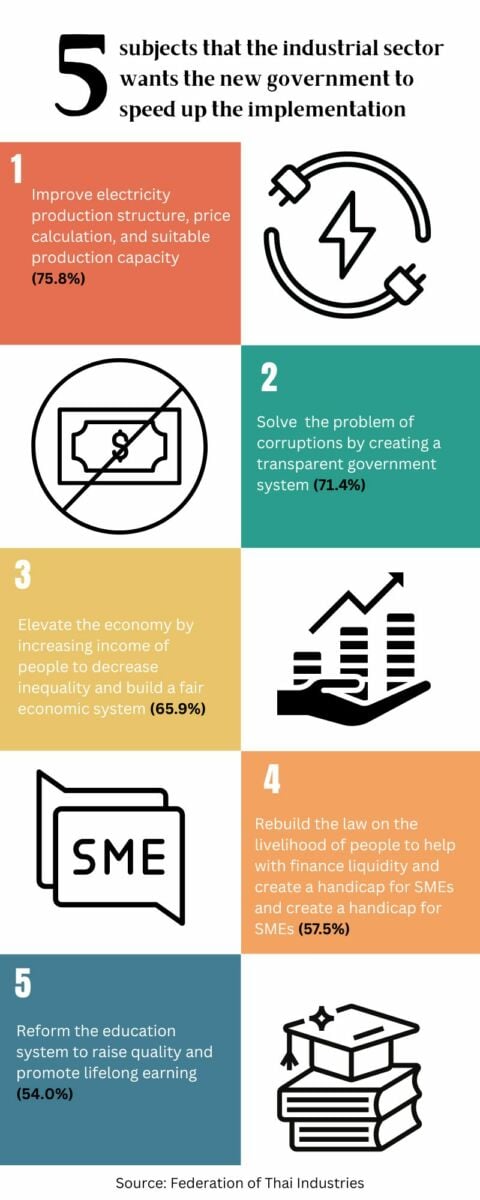Thai entrepreneurs urge government to prioritise reducing energy costs

A recent survey by the Federation of Thai Industries (FTI) has shown that the majority of entrepreneurs are urging the new government to fulfil its promise to lower electricity costs, as outlined in a memorandum of understanding (MoU) signed by the Move Forward Party and seven other political parties. Of the 252 executives across 45 industries surveyed, 75.8% voted for adjusting energy prices as the most critical and urgent issue among those listed in the MoU.
On May 22, the parties intending to form a Move Forward Party-led coalition government signed the MoU, agreeing to restructure the power tariff and electricity production structure to ease living costs. This agreement is part of 23 issues agreed upon by the eight parties, aiming to build a new Thailand through ambitious economic and social development plans.
“Energy cost is a main expense in the industrial sector. Its increase not only drives up operating costs among businesses but also leads to a high cost of living for households,” said Montri Mahaplerkpong, vice-chairman of the FTI.
Between May 1 and August 31, both businesses and households are paying a new power tariff of 4.70 baht per kilowatt-hour (unit), a slight decrease from the first four-month cycle. In the first four months of this year, businesses paid 5.33 baht per unit, up 13% from the previous record high of 4.72 baht per unit, while households paid 4.72 baht per unit.

On Tuesday, the eight parties agreed to form a committee to prepare for a transition of power from the Prayut Chan-o-cha administration. They also set up seven working panels to address various social, legal, environmental, and economic issues, including the impact of high electricity prices.
Kriengkrai Thiennukul, chairman of the FTI, previously stated that high energy prices could affect Thailand’s ability to attract foreign investment and even cause foreign investors to delay their plans. Some foreigners who signed investment agreements with Thai firms decided to cancel the deals due to this issue, Bangkok Post reported.
The FTI poll also revealed that 71.4% of votes were in favour of promoting a culture of transparency to combat corruption, while 65.9% voted for reducing inequality and ensuring fair economic growth.
Latest Thailand News
Follow The Thaiger on Google News:


























